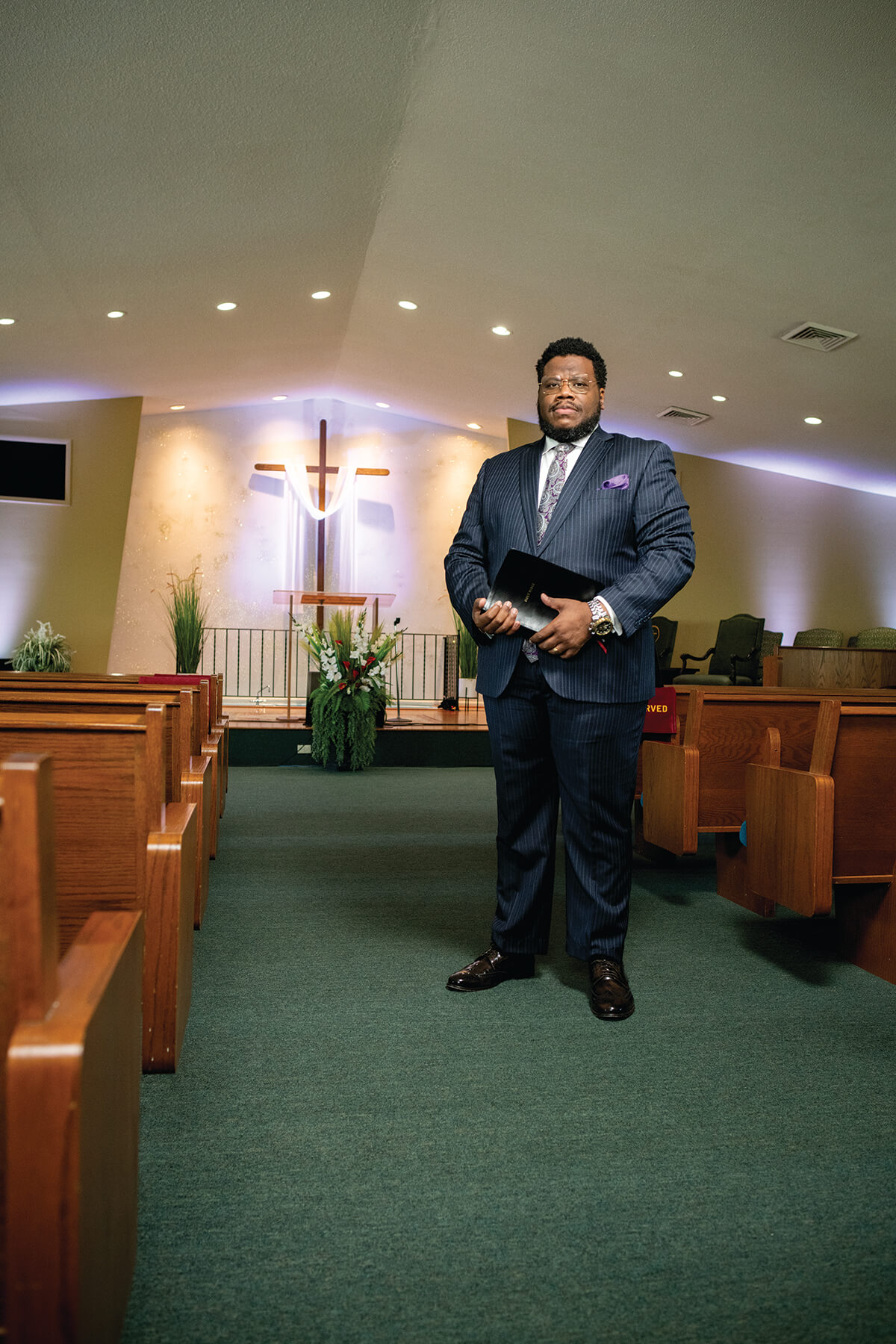GameChangers
In the Wake of Key Bridge Collapse, Pastor Rashad Singletary Let His Faith Guide Him
When the bridge came town on that fateful Tuesday, the pastor at Mt. Olive Baptist Church in nearby Turner Station sprang into action to unite the community.

When he learned about the collapse of the Francis Scott Key Bridge on that fateful Tuesday morning, March 26, Pastor Rashad Singletary rushed to his red-brick church in Turner Station, located less than 500 feet from where the iconic piece of infrastructure had stood just hours earlier. There, he checked in with colleagues, congregants, and community members, then donned his official credentials as Baltimore City’s director of community affairs and started to consider what to do next.
In addition to leading Mt. Olive Baptist Church, the 35-year-old faith leader has worked in community engagement for more than a decade, including a longtime career with local gun violence intervention nonprofit Safe Streets, before joining the Mayor’s Office in 2021. This experience would help him, and others, swiftly organize a community vigil in his own pews, gathering dozens of politicians, members of the press, and affected residents in a powerful moment of unity in the wake of a tragic event that not only rattled Baltimore, but the entire world.
How would you describe your community?
Number one, Turner Station is one of the most historic African-American communities in the country. It is a resilient community. It’s family oriented. And it’s very small—there’s one way in and one way out—but there’s a lot of talent and love there.
What has the bridge meant to the people of Turner Station?
The Key Bridge was not just a place of traffic for the Port of Baltimore; it also connected communities. I have congregants who watched the bridge being built. And so when it collapsed, a lot of our community wasn’t just shaken up because it fell, but because it was a part of their growing up, and of their livelihood. Personally, for me, I would take the bridge with my wife and kids to get to work, to go home, to visit with congregants. Now we’re having to get used to going outside and not seeing it there anymore. And to not hearing the traffic on 695. It’s so quiet now.
The vigil was an interfaith gathering, including Mayor Brandon Scott and Baltimore County Executive Johnny Olszewski. What was the experience like for you in the end?
It was very humbling. Because where our church is located, we’re all the way down at the bottom of the road. It’s beautiful, right next to the water, but most people wouldn’t even know we’re here. Personally, I had been contemplating, “God, I know you sent me to this church, I know that we’re growing, but I really want to be able to serve this community in a greater way, I just need some guidance.” …It was almost as if God said to me, “I’m showing you what your responsibility is. And that is to minister to communities, regardless of race, religion, or crisis. To be available to do what I’ve called you to do, at any moment.”
How have you found faith in the weeks that have followed?
The collapse of the bridge was a major tragedy, but it has also developed new relationships and brought our community together in a way that it might have not been engaged in before. And now that the government is looking for ways to rebuild, let’s not forget about these communities that have been neglected…What opportunities do we have to rebuild [their] infrastructure?